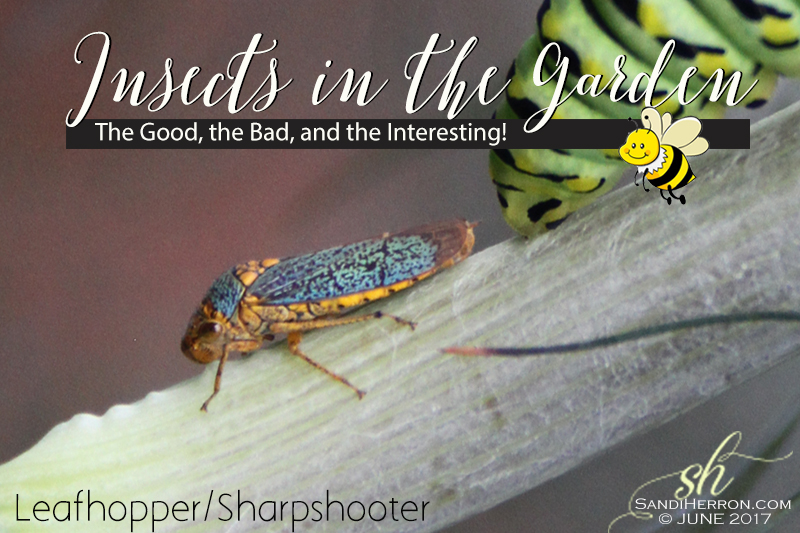
The common Leafhopper, also known as Sharpshooter
I discovered Black Swallowtail Caterpillars on the fennel plants along a walkway in our back courtyard. With the enthusiasm and excitement of a child on Christmas morning, I began the daily, sometimes hourly, task of photo and video documentation of the changes from caterpillars to beautiful butterflies.
When viewing the photos and videos after the sessions, I would discover other types of insects hanging out with the caterpillars. In one of the photos, I found a strange little creature that looked like a cross between a frog and a grasshopper. Displaying beautiful wings of blue and a golden brown body, I kept my fingers crossed that it would be a beneficial insect for the garden. I researched the internet and sought help from the Facebook Group “Insect Identification.” It is one of my favorite groups on FB; knowledgeable, responsive to questions at any level, and the admins maintain the purpose of the group in a professional manner. The little insect was quickly identified as a “sharpshooter.”
Armed with a name, I continued my internet research to learn about the new garden visitor.
Sharpshooter Identification and Facts
- A Sharpshooter is a type of Leafhopper insect that sucks plant juices from common host plants including potatoes, beans, lettuce, grapes, roses, and many more. These small insects have piercing mouth-parts that enable them to feed on the sap from the leaves and stems of a host plant.
- Food Source: The food source for the leafhopper is plant sap. Some research indicates that they will also eat aphids.
- Life cycle: They live only a few months.
- Communication: Adult males seek out females for mating by the use of vibrations or mating sounds.
- Concerns: Bacteria that it passes from plant to plant. Also, destruction of the stems of the plant as the sharpshooter sucks the life out of the plant.
- Natural Control: Food source for birds, lizards, ladybugs, spiders, assassin bugs, flies, and some species of wasp.
- Benefits: NONE
RATING: Bad bug in the garden!
Discover more from Sandi Herron - Life at Spring Meadows
Subscribe to get the latest posts sent to your email.
